Developed by JetBrains in 2010, managed by the Kotlin Foundation and declared as the first preferred language for Android development by Google, Kotlin is a general purpose, pragmatic, multi-platform, safe programming language with type interference used to create stable and scalable apps on Android. It was created to run with a Java virtual machine (JVM) and can therefore be used in conjunction with the JavaScript source code as well, using the LLVM compiler infrastructure. The aim was to create a language that would reduce the coding time as well as be less error-prone when compared to Java. Notably though, Kotlin was designed to work with Java code as well.

Kotlin is an object-oriented language that excels with functional programming as well. It is more standardized than Java, with many essential features including higher-order functions, operator overloading, lambda expressions, string templates and lazy evaluation. For those who are familiar with Java, Kotlin is an easy language to read, learn and use, being more readable and maintainable in comparison.
Kotlin was not created to rebuild apps from scratch. The aim of the app was simple - to create a modern language that is easier and more convenient to use while integrating with existing languages and frameworks. This is why most of the language is similar to Java, so that existing Java code can easily be converted.
While Java doesn’t support lambdas, method references, streams and try-with-resources and has to integrate with third-party systems to enable these features, apps developed using Kotlin have a higher performance rate due to its support of inline functions and usage of lambdas, making it a functional language.
Even though IntelliJ IDEA (also created by JetBrains) is the official IDE for Kotlin app development, developers can use Eclipse, IntelliJ and Android Studio as well. Furthermore, Kotlin does not have its own package manager allowing tools like Gradle and Maven to integrate with it.
Kotlin Development
Kotlin was not only designed for Android development but is used for JavaScript, server-side, web and desktop development as well.

Android Development
Before 2016, Java was the main programming language for all Android development. However, in 2017, Kotlin was widely considered to be the preferred language for Android development, mostly due in part to its compatibility with JDK 6, interchangeability with Java, easy readability, high performance and fast compilation.

JavaScript Development
Kotlin supports JavaScript development by transpiling all Kotlin code part of the standard library to JavaScript, excluding JDK or any Java framework, allowing developers to run Kotlin on browsers. This would allow for the creation of web service and desktop applications with Java Virtual Machines and web clients targeting JavaScript. Kotlin tries to provide readable JavaScript as an output which is operational with existing module systems and provides the required functionality in the standard library.

Why prefer Kotlin over Java
While Kotlin and Java are both similarly structured, Kotlin being relatively new and modern has now become a better choice, even though Java is an established language with a huge ecosystem. Do you ever wonder why tech giants like Google, Amazon, Pinterest, Uber, Netflix and Coursera are using Kotlin?
Here’s why:

Open-Source
Kotlin is open-source, which means that it is community driven. This means that developers all around the world can provide recommendations and suggestions to improve and enhance Kotlin’s programming capabilities, to provide solutions for bugs or inefficiencies in the language, and to help fellow developers in resolving issues and optimizing their applications. The Kotlin community is available on Github.
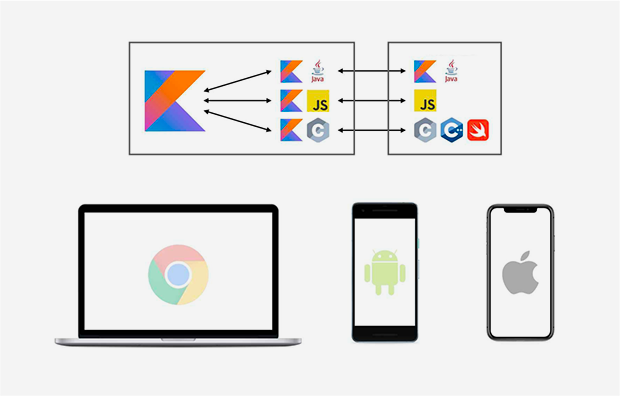
Cross-Platform
One of the main reasons why Kotlin is preferred by the technological community is its capability to build cross-platform apps providing users with a complete native app experience in terms of design, layout and performance of the app. Being supported by JVM, Android, JavaScript, iOS, Linux, Windows and Mac enables Kotlin to create modern and user-friendly apps with a high-performing back-end infrastructure.


Compact Code
With Java, developers have to follow various steps like accessing a database, handling fragment transactions and more before being able to execute app development. Kotlin’s most essential feature is the simplification of its coding process with features like type interface, smart casts and data classes, which allow for approximately 40% fewer lines of code needing to be written as compared to Java. This reduces boilerplate codes like toString, getters/setters, hashCode and equals. Less code not only creates a time-efficient coding process but also optimizes memory as app size becomes smaller. It further increases code maintainability and readability.
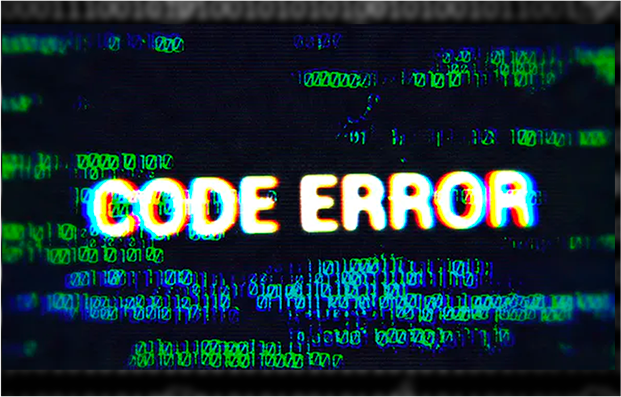
Less Error-Prone
Due to Kotlin being statically-typed -- a trait where every variable and expression is known -- developers are more easily able to find and fix bugs before compilation so that the app runs smoothly.
The most popular feature of Kotlin is probably how it deals with NullPointerException. Java apps frequently show the NullPointerException error causing the Android app to crash approximately 70% of the time. It is well-known that it is virtually impossible to have a Java app in production that does not have NullPointerException. Furthermore, Java makes it difficult to handle “nullabilty” -- the representation of the absence of a

value, which is used in Android frameworks and APIs. With the development of Kotlin, null safety is integrated into the framework, preventing the NullPointerException and hence apps from crashing, making app development a time efficient process. This feature works to make sure that every subject and variable has a non-null value, thereby reducing the chance of crashes. If you still want to add a null value, you can use a question mark at the end of the variable.

Interchangeable with Java
Kotlin works on JVM and is interchangeable with Java code. This means that Kotlin code can be effortlessly accessed from Java, and vice versa, compiling both languages into one project. Since Java and Kotlin create similar byte code, developers do not need to create an app from scratch; Kotlin can be used to modify and develop apps containing existing Java code.
Furthermore, there is a built-in Java-to-Kotlin converter in the IDE which can convert Java code to Kotlin, focusing on Java binary compatibility allowing developers to convert existing and verbose Java-based apps to modern Kotlin ones.
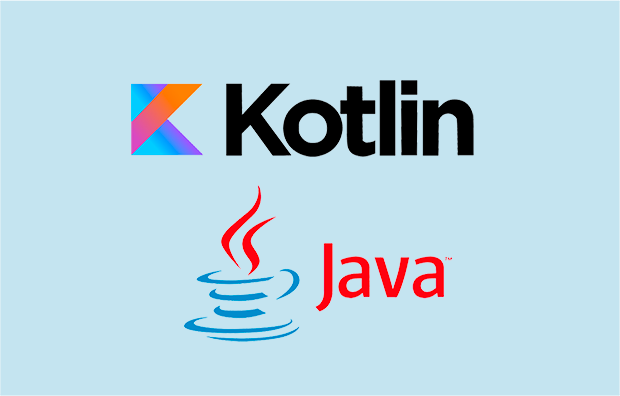
Compatibility with Tools
Kotlin can be integrated with all tools that are integrated with Java -- Spring, Gradle, Spark Java, Codename One - including IDEs such as IntelliJ, IDEA, Eclipse and Android Studio.
Furthermore, Kotlin has an extension function which allows developers to add additional features into their existing code without writing the same boilerplate code multiple times. This feature is suitable for calculations and appending strings.

Why choose Winterwind for Kotlin Development

As businesses move towards being digital, choosing the right software for your mobile app is essential for business growth. You will need to make sure that the technology you choose provides a stable and fast-running app and also provides your users with a smooth user experience.
Having developed apps for various businesses using the modern Kotlin programming language, we have the required expertise to create the mobile app that your business requires. Our app development team is proficient with Kotlin, Android Studio, JavaScript, GIT and SVN and have years of experience building apps with Kotlin.
Using a safe, compact and tool-friendly language, our team is adept at building the app best suited to represent your business. We have catered to businesses ranging from small scale startups to large scale industrial level enterprises, developing apps of all sizes and complexities. We are diligent with creating apps personalized according to your requirements with a robust and high-performance backend.

How Our App Development Process Works
The project starts off with the planning phase where we understand your business requirements, your business strategy and your app requirements. We conduct market research and analysis to provide the most suited business solution for your business, presenting wireframes and mockups to present the infrastructure and layout of the app to make sure it is in line with your business identity. After your approval on the designs, we develop and deploy the app, with our QA team conducting testing at every phase to prevent bugs and crashes. After the development process is complete, our team carries out vigorous testing to ensure that the app is running smoothly and effortlessly.

Once the app is successfully deployed, you can contact our support and maintenance team around the clock through email or real-time chat for any issues that you encounter. We provide long-term support post-launch ensuring that all issues are addressed promptly.
Our Kotlin Development Services
We provide the following services in Kotlin:
App support and maintenance
App support and maintenance
Our Portfolio
Task & Project Management - Meister Task
With a rating of 4.6 on the Google Play Store, MeisterTast is an intuitive tool for project and task management, ideal for personal organization and for efficient teams. Whether you want to manage projects or create checklists, MeisterTask is ideal to make workflows more efficient. It is not only a simple task management tool, it also secures project-related information and provides access to project members.
Based on their requirements, our development team built this app using Kotlin, creating a dashboard with quick access for users while also enabling features like checklists and activity lists where users can leave likes and comments. We also enabled notifications for users to be up-to-date on the activities of their team with communication enabled across all devices. For pro and business plans, we added features for users to attach files, create multiple checklists and groups, view stats, customize their dashboards and projects, share projects and assign roles and permissions.
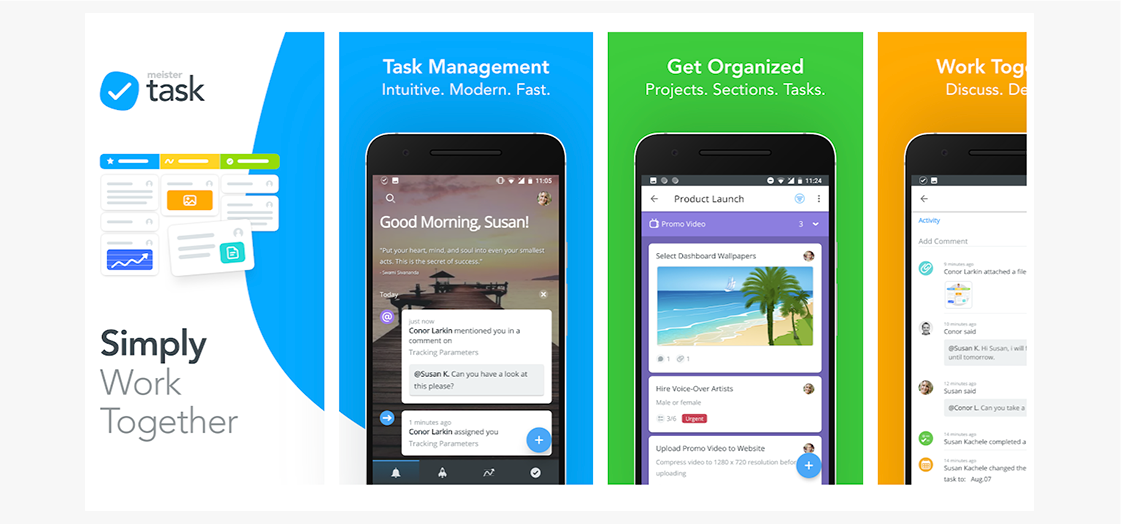
For more information on the app, click on the link: https://play.google.com/store/apps/details?id=com.meisterlabs.meistertask.native
Receipt Scanner: Smart Receipts & Expense Tracker
The receipt scanner automatically scans receipts, crops and extracts key information, saving time in the organization of business receipts and expenses. All receipts are automatically uploaded and stored safely. Receipts can be grouped into expense reports to be sent for approval or billed as an invoice. Expenses can be used to generate quarterly and annual summaries for export in CSV format.
Built with Kotlin, we designed the app to be simple and intuitive so that users can scan their receipts within seconds, creating charts and reports to manage and calculate expenses. Key features that we incorporated include the receipt scanner, automatic conversion of receipt into expenses, easy expense tracking, export and email expenses, conversion of expenses into billable reports, automatic cloud synchronization and availability of the app both online and offline.
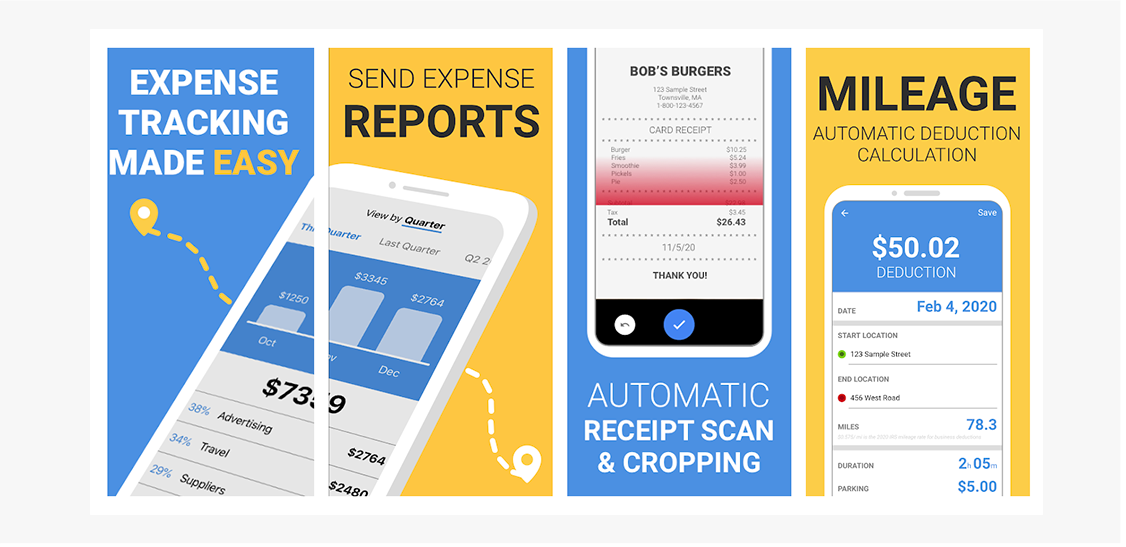
To know more about the Receipt Scanner, follow the link: https://play.google.com/store/apps/details?id=com.easyexpense
Have a unique idea for your business app? Talk to us today!















